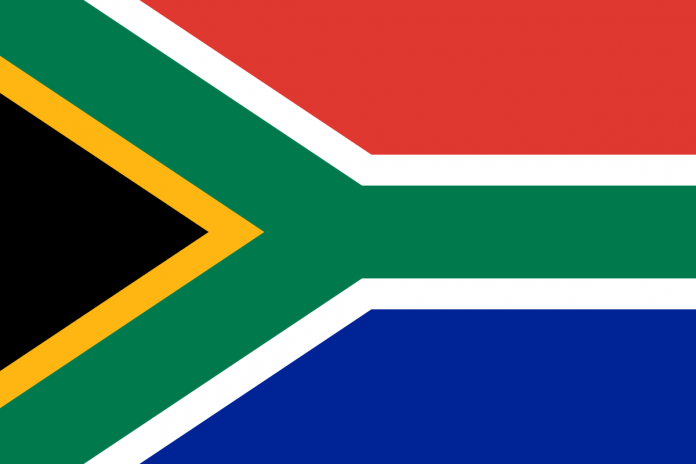South Africa Braces for Heavy Job Losses As Stiff U.S. Tariffs Take Hold

As sweeping new US tariffs take effect on Thursday, dozens of countries are facing sharp new duties on their exports. South Africa is among the hardest hit, with key goods now subject to a 30 percent tariff and up to 100,000 jobs on the line.
The tariff hike, ordered by US President Donald Trump, is part of a wider effort to reset global trade on terms more favourable to Washington.
South Africa’s reliance on exports like cars, steel and citrus – combined with an already fragile economy – leaves it particularly exposed.
The South African government had spent months trying to negotiate a deal to avoid the penalty. It offered to buy US liquefied natural gas and invest $3.3 billion (€2.8 billion) in US industries in exchange for lower tariffs. The offer was rejected – even after a last-minute effort to improve it.
Trade and Industry Minister Parks Tau said the talks had been unusually difficult.
“These are very complex negotiations, certainly unprecedented,” he said. “At this stage, we must focus on the task at hand and not on finding those responsible.”
Foreign Minister Ronald Lamola called for unity. “We’re talking about our economy. This is not the time for political calculations, whether in the opposition or within the national unity government,” he said.
“We must all speak with one voice. And we can’t just blame South Africa; this is a global phenomenon.”
President Cyril Ramaphosa said last week that the government would act to ease the impact of the tariff.
Emergency support measures
Pretoria has launched a producer support programme to help exporters find new markets. Willem van der Spuy, head of exports at the Department of Trade, Industry and Competition (DTIC), said the aim is to reduce dependence on a few major partners.
“Through this support office, we will connect producers with embassies and potential buyers to penetrate new markets. But also, in general, to help the country diversify its exports,” he said on Tuesday.
The DTIC has also set up an Export Support Desk to advise affected companies. Tau described the move as part of a broader effort to help the country through “a trying moment”.
He said the new tariff is a direct threat to jobs in key industries, including automotive, agro-processing, steel and chemicals.
“We are working with urgency and resolve to implement real, practical interventions that defend jobs and position South Africa competitively in a shifting global landscape,” Tau said in a statement.
Trump’s executive order, signed on 31 July, set tariff rates ranging from 10 to 41 percent on dozens of countries. African states face duties between 15 and 30 percent.
Africa braces for fallout as US tariff deadline is pushed back a week
Almost 100,000 jobs at risk
Lesetja Kganyago, governor of South Africa’s central bank, said the tariff could cost up to 100,000 jobs. The country already has an unemployment rate of nearly 33 percent.
The United States is South Africa’s second-largest trading partner after China. Top exports to the US include cars, iron and steel, and citrus fruits.
Speaking on 702 Radio, Kganyago said farming would take a major hit. “Here the impact is on citrus fruit, table grapes and wines,” he said.
About 6 to 8 percent of South Africa’s citrus crop is exported to the US. For farmers in Citrusdal, 200 kilometres north of Cape Town, that trade is vital.
“At the moment it’s about 25 to 30 percent of our business,” said Gerrit van der Merwe, speaking from his 1,000-hectare orange farm.
Until now, South Africa’s exports to the US had been tariff-free under the African Growth and Opportunity Act (AGOA). That status now appears to be ending.
More than 70 percent of arable land in South Africa remains in the hands of the white minority, based on the latest figures from 2017. Many commercial farmers are among those most exposed to the impact of the new tariffs.
South Africa criticises US plan to resettle white Afrikaners as refugees
Diplomatic tensions
Officials in Pretoria say the tariff is not just about trade. It also reflects growing tensions with Washington over domestic and foreign policy.
Trump has falsely claimed that white farmers are having their land seized and has voiced strong opposition to South Africa’s land reform and affirmative action laws.
The White House is also angry over South Africa’s decision to file a genocide case against Israel at the International Court of Justice.
South Africa currently holds the G20 Presidency and will host the first G20 leaders’ summit in Africa in November 2025. Officials had hoped Trump would attend, but he said late last month he might skip the event, citing frustration with South Africa’s foreign policy.
“Since the last 30 years, there have been disagreements with the US administration on a number of issues, but the diplomatic lines of engagement have always been open,” Lamola told French news agency AFP on Tuesday. He said relations had “reached a low”.
By RFI website.



